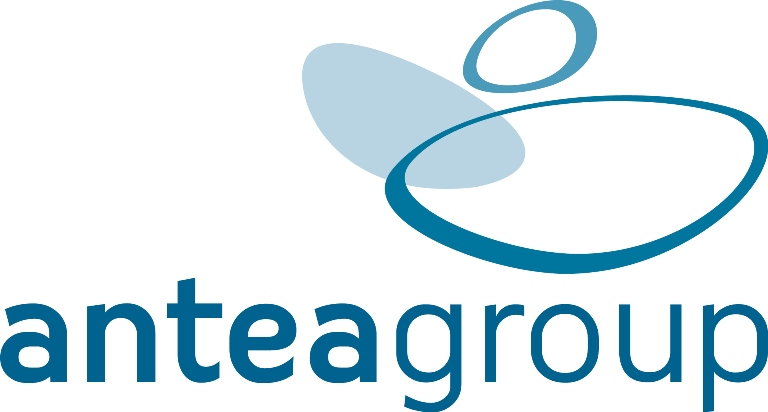Sustainability Resource Hub: Strategies, Metrics, and Best Practices

The world is changing fast. Building resilience into your overall business strategy is key for continued growth. Investing in corporate sustainability has become a reliable source of competitive differentiation—yet many companies still struggle to quantify its value.
This post provides a starting point for businesses to learn about sustainability and why it is crucial for long-term success.
The Business Case for Sustainable Strategies
Sustainability has substantial business benefits well beyond mitigating environmental impact. A comprehensive sustainability strategy can improve profitability, strengthen supply chains, and position businesses to meet investor, customer, and regulatory expectations head-on.
Operational efficiency boosts profitability
Sustainability initiatives often start as risk mitigation efforts but quickly reveal themselves as great drivers of efficiency. Take energy efficiency: businesses investing in advanced building automation and renewable energy integration are lowering operational expenses while reducing exposure to volatile energy markets.
Investor expectations play a key role
Capital markets are no longer neutral on sustainability. Institutional investors and lenders are evaluating businesses through environmental, social, and governance (ESG) performance metrics, and companies with weak sustainability strategies are seeing higher borrowing costs and diminished investor confidence. For C-suite leaders, the question is no longer if sustainability matters in financial performance, but how to maximize its impact.
Risk management amidst shifting regulations
Regulatory pressure on environmental performance is intensifying across industries, from carbon pricing mechanisms to supply chain due diligence laws. But compliance isn’t the only concern—businesses that lag behind in sustainability commitments are losing ground to competitors that are proactively managing risks and adapting ahead of regulatory shifts.
Beyond compliance, companies are also contending with increasing supply chain volatility. Extreme weather events, resource scarcity, and geopolitical instability are all creating material risks that sustainability-minded organizations are better equipped to navigate.
The impact on brand reputation
Customer and workforce expectations are evolving, and companies that fail to demonstrate authentic, measurable sustainability commitments are losing credibility. In B2B and B2C markets alike, procurement teams are prioritizing suppliers with clear environmental and social responsibility commitments, while employees are choosing employers that align with their values. The companies that lead on sustainability aren’t just meeting expectations—they’re setting the standards that others will follow.
Related resource: Environmental Sustainability Meets Business Sustainability
Core Sustainable Business Strategies
Organizations that take a structured, data-driven approach to sustainability are better positioned to optimize operations and future-proof their business. Below are four key areas where sustainability delivers measurable impact.
Optimizing resources through waste reduction
Waste can be a serious financial liability. Companies that systematically reduce material waste, water consumption, and excess energy see the dual benefits of improving costs while mitigating supply chain risks. Circular economy principles are reshaping industries, with businesses designing waste out of their systems through closed-loop manufacturing, product take-back programs, and materials innovation.
Supply chain sustainability and responsible sourcing
A company’s sustainability impact extends far beyond its own walls. Supply chain emissions (scope 3) often dwarf direct operational emissions, making procurement strategies a critical component of any sustainability plan. Businesses that actively engage suppliers on ESG performance are not only reducing environmental impact but also improving supplier reliability, lowering risks related to resource scarcity, and ensuring compliance with new and changing regulations.
Implementing energy-efficient operations
Energy costs and carbon reduction targets are pushing businesses to rethink their approach to power consumption. Companies investing in energy-efficient infrastructure, such as smart building systems, process automation, and heat recovery technologies, are seeing immediate returns in the form of lower utility bills and improved operational stability. Many are also shifting toward renewable energy, leveraging on-site solar and wind installations, power purchase agreements, and microgrids to stabilize costs and hedge against energy market volatility.
Sustainable product design
Sustainability is being engineered into products from the ground up. Companies are responding to regulatory shifts and consumer demand by prioritizing recyclable, biodegradable, and lower-carbon materials. Modular product designs, where components can be easily repaired or replaced, are reducing waste while unlocking new revenue models, such as product-as-a-service offerings. In sectors from packaging to electronics, organizations are redesigning products to meet end-of-life recovery goals, ensuring compliance with circular economy legislation, and differentiating themselves in increasingly sustainability-conscious markets.
Related resources:
Five Ways to Optimize Sustainability Across Global Facilities
Legislation and Best Practices in Supply Chain Sustainability
Measuring and Reporting Sustainability Performance
Sustainability commitments are only as strong as the data behind them. Investors, regulators, and customers increasingly demand measurable, transparent reporting. Companies that integrate robust sustainability metrics into their business strategy gain a competitive edge by demonstrating that accountability.
Establishing KPIs for sustainability goals
Setting clear, quantifiable sustainability goals is essential for driving real impact. Leading organizations establish key performance indicators (KPIs) that align with business objectives and stakeholder expectations. These may include:
- Carbon footprint reduction (Scope 1, 2, and 3 emissions)
- Energy efficiency improvements (kWh saved per unit of production)
- Water conservation efforts (gallons reduced per process or site)
- Waste diversion rates (percentage of waste diverted from landfills)
- Supplier sustainability compliance (percentage of suppliers meeting ESG standards)
The role of corporate sustainability reporting
Sustainability reporting has evolved a great deal. Frameworks like the Global Reporting Initiative (GRI) and the Corporate Sustainability Reporting Directive (CSRD) are shaping how companies disclose environmental and social impacts.
High-quality sustainability reports are:
- Data-rich and transparent, backed by verifiable metrics rather than marketing statements.
- Aligned with recognized frameworks to meet regulatory and investor expectations.
- Forward-looking, showcasing progress, challenges, and future sustainability roadmaps.
Related resource: Back to Basics: A Step-by-Step Guide for Preparing an Annual Sustainability Report
Understanding ESG ratings and rankers
Environmental, social, and governance (ESG) ratings influence capital investment, brand perception, and stakeholder trust. However, the ESG rating landscape is complex, with different agencies using varying methodologies to assess corporate performance.
Businesses aiming to improve their ESG scores must proactively engage with raters, ensure accurate data submission, and align their sustainability efforts with investor priorities. Understanding how these ratings impact financial performance, regulatory compliance, and competitive positioning is critical for long-term success.
Related resources:
A Guide for Preparing an Annual Sustainability Report
ESG vs. CSR: Key Differences & What Businesses Need to Know
Understanding ESG Raters, Rankers & Corporate Sustainability
Resources for Sustainability Leaders
Whether you’re shaping corporate sustainability strategy, navigating ESG regulations, or seeking innovative solutions, staying informed and up to date on the latest developments is key. Below is a curated selection of books, podcasts, and conferences that provide expert insights, practical guidance, and global perspectives on sustainability.
Top books on sustainability and ESG
For executives and sustainability professionals looking to refine their strategies, these books offer research-backed insights and actionable frameworks:
Leaving Planet Simple: Embracing Sustainability, ESG, and Resilience to Transform Your Business by Dr. Alex Gold
Dr. Alex Gold challenges business leaders to embrace a resilience mindset. Drawing from his expertise in resilience science and corporate strategy, he explores how businesses can thrive by recognizing their role within interconnected ecosystems rather than operating in isolation. A compelling guide for leaders looking to embed sustainability and ESG into long-term success.
Where to Find It: Bookshop.org | Amazon
Silent Earth: Averting the Insect Apocalypse by Dave Goulson
Biologist Dave Goulson sounds the alarm on the devastating decline of insect populations and what it means for the planet. Through accessible storytelling and rigorous research, he connects biodiversity loss to climate change and food security, highlighting the dangers of pesticide overuse while offering solutions to restore balance. A must-read for those concerned about the future of our ecosystems.
Where to Find It: Bookshop.org | Amazon
Nature’s Best Hope: A New Approach to Conservation That Starts in Your Yard by Douglas W. Tallamy
Douglas W. Tallamy presents a powerful grassroots approach to conservation, showing how homeowners can turn their yards into vital wildlife habitats. By planting native species, individuals can play a direct role in biodiversity restoration—without waiting for government action. Practical, inspiring, and full of actionable steps, this book makes conservation feel personal and achievable.
Where to Find It: Bookshop.org | Amazon
Explore more must-read ESG and sustainability books.
Podcasts: Sustainability Insights from Industry Experts
Podcasts provide a convenient way to stay informed on sustainability trends, regulatory shifts, and corporate best practices. Recommended listens include:
GreenBiz 350
Sustainability news, industry insights, and expert analysis—delivered with wit and clarity by GreenBiz veterans Joel Makower and Heather Clancy. This weekly podcast unpacks the latest trends shaping the future of sustainable business.
Available On: Apple Podcasts | Stitcher | SoundCloud
ESG in Conversation
Stay ahead of the ESG curve with expert-driven discussions on sustainability risks, investment opportunities, and corporate responsibility. Each episode breaks down the latest research and insights shaping business, finance, and global markets.
Available On: Spotify | Apple Podcasts
Sustainability Defined
Sustainability can be complex—this podcast makes it clear. Hosts Jay Siegel and Scott Breen tackle key sustainability topics with expert guests, making the issues (and solutions) easy to understand for pros and newcomers alike.
Available On: Apple Podcasts | Stitcher | Spotify
Find more top sustainability podcasts here.
Conferences to consider
Attending industry conferences and following key sustainability voices helps leaders stay ahead of trends, connect with peers, and gain insights into the future of corporate sustainability.
Top Conferences:
- Reuters Responsible Business USA 2025 – Focuses on embedding sustainability into brand strategy and corporate culture.
- Sustainable Brands: SB’25 - A premier global event where business and brand leaders gather to explore the long-term impact of innovation, purpose, and sustainability.
- FORUM25: NAEM EHS & Sustainability Management Forum - The largest annual event for EHS&S professionals, offering peer insights, emerging strategies, and practical solutions for advancing corporate sustainability.
See more must-attend sustainability conferences
Sustainability leadership requires continuous learning. Bookmark this page to help stay ahead of industry shifts as you refine your sustainability strategies.
Discover how Antea Group's Sustainability Consulting services can empower your business.

